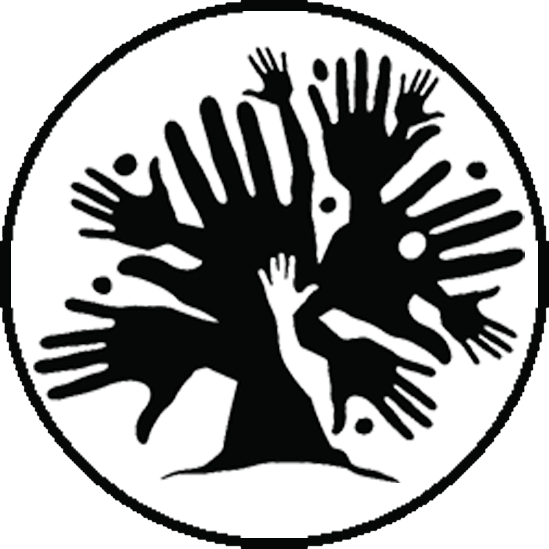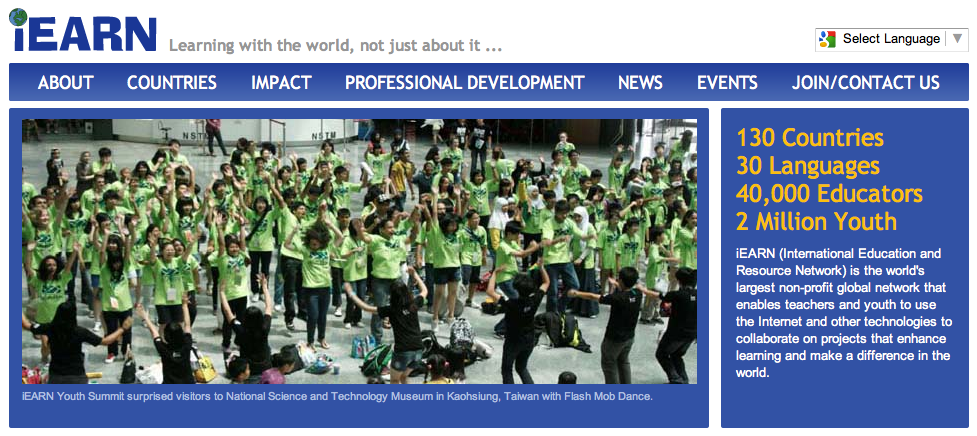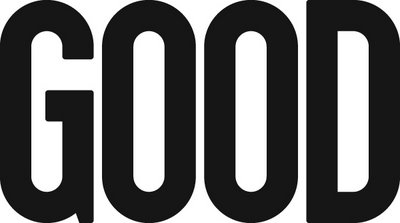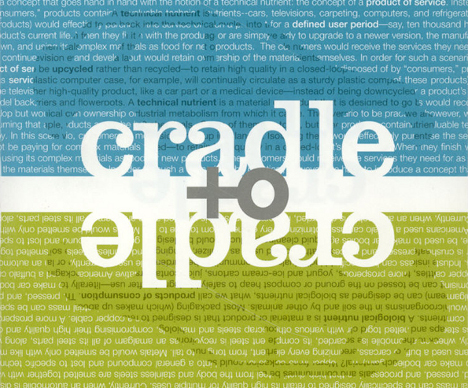Cual es el punto de la educación? El sistema educativo actual y como lo podemos cambiar para fomentar el pensamiento crítico.
Cosmovisión
Organización basada en Guatemala que crea obras originales de temas sociales y ambientales. La misión de Cosmovision es la comunicación social para transformar la realidad consolidando el respeto a los derechos de los pueblos y el respeto a la naturaleza. Para este proposito se utiliza educacion popular, entretenimiento, investigación social, y producción de materiales educativos con la participacion de los actores en el proceso de creación.
Guatemalan organization that produces original works with environmental and social themes. Cosmovisión's mission is to transform reality through social communication, consolidating respect for nature and people's rights. To do this, they use popular education, entertainement, social investigation, and production of educational materials that have been created through participatory approaches.
Defensa y conservación de los Manglares de Tulate, Retalhuleu Guatemala. Realizado por Sergio Lopez.
The Internet Defense League
If you have a website and care about the future of the internet, then this is for you. The Internet Defense League (IDL) is a newly launched early warning system for any law that threatens the freedom of the internet to coordinate and call action to protect it. To quote the IDL website:
The Internet Defense League takes the tactic that killed SOPA & PIPA and turns it into a permanent force for defending the internet, and making it better. Think of it like the internet's Emergency Broadcast System, or its bat signal!
The Problem
Internet freedom and individual power are changing the course of history. But entrenched institutions and monopolies want this to stop. Elected leaders often don't understand the internet, so they're easily confused or corrupted.
The plan
When the internet's in danger and we need millions of people to act, the League will ask its members to broadcast an action. (Say, a prominent message asking everyone to call their elected leaders.) With the combined reach of our websites and social networks, we can be massively more effective than any one organization.
How it works
First, sign up. If you have a website, they will send you sample alert code to get working in advance. The next time there's an emergency, they will tell you and send new code. Then it's your decision to pull the trigger.
The Venus Project
AuthorAID
The mission — to reduce poverty and improve population health, and to build science and research capacity in developing countries where the problems reside — is likely to engage established scientists who want to help but lack simple means. - Phyllis Freeman and Anthony Robbins
Scientists from developing countries are currently underrepresented as authors in published scientific literature. AuthorAID aims to change that by helping researchers in developing countries write and publish their work. One way it does so is by helping early-career researchers find mentors who can help them with their writing and research and providing them with a user-friendly online space in which they can collaborate, completely free of charge.
As Freeman and Robbins (2005) state in Closing the 'Publishing Gap' between rich and poor, "Authors needing help are not in short supply, nor are potential voluntary mentors. Experienced, often-published scientists at or near retirement appear especially eager to help." AuthorAID's dynamic online community of senior researchers could help thousands of authors around the world who do not have enough analytic and editorial support. To date, nearly 3700 researchers and others, from more than 150 countries, have registered with AuthorAID. Nearly 600 have registered as mentors.
- Search by country, field of research, or keyword to find a researcher
- Sign up to be matched with a mentor or a mentee
- Browse their research communication resource library
- Training events, support to find funding, and more
Find out what AuthorAID looks for in its mentors and mentees. Available in English and Spanish.
The Story of Stuff Project
Where does everything we buy come from and where does it go after we are done using it? Is bottled water better than tap water? What is “cap and trade” and can it help us solve climate change?
These simple questions have complex answers, and most people are not familiar with them because they often involve industrial and economic processes kept out of public sight. This is where the Story of Stuff Project comes in:
Annie Leonard and Free Range Studios have made a series of short, action-packed animations illustrating the social, economic, and ecological stories behind complex subjects. Subjects include: The materials economy and people's consumption patterns, manufacturing demand for bottled water, E-waste and designed obsolescence, the pervasive use of toxic chemicals in our everyday personal care products, the inordinate power that corporations exercise in U.S. democracy, the "devils in the details" in current cap and trade proposals, and released today, the broken economy and how to fix it.
Their animations have become more than internet sensations: they are powerful educational tools and seek a to empower the lay person by providing a basic understanding of the inner workings of the economic forces of society and how we can all influence their direction towards a more democratic and sustainable future.
Subtitles in several languages are provided for most movies. Highly recommended!
In Defense of Food
Journalist-turned-food-expert, Michael Pollan's poignant advice on how we can remedy both our health and our food system can be summarized in three simple rules: EAT FOOD, MOSTLY PLANTS, NOT TOO MUCH. I will try to summarize his main points below using many of Pollan's own headings, but the way the author compellingly fleshes out each point should not be missed.
GETTING OFF NUTRITIONISM
Escape from the western diet
EAT FOOD: Food defined
- Don't eat anything your great grandmother wouldn't recognize as food.
- Avoid food products containing ingredients that are a) unfamiliar, b) unpronounceable, c) more than five in number, or that include high-fructose corn syrup.
- Avoid food products that make health claims.
- Shop the peripheries of the supermarket and stay out of the middle.
- Get out of the supermarket whenever possible
MOSTLY PLANTS: What to eat
- Eat mostly plants, especially leaves.
- You are what you eat eats too.
- If you have the space, buy a freezer.
- Eat like an omnivore.
- Eat well grown food from healthy soils.
- Eat wild foods when you can.
- Be the kind of person that takes supplements.
- Eat more like the French, or the Italians, or the Japanese, or the Indians, or the Greeks.
- Regard non-traditional foods with skepticism.
- Don't look for the magic bullet in the traditional diet.
- Have a glass of wine with dinner.
NOT TOO MUCH: How to eat
- Pay more, eat less.
- Eat meals.
- Do all your eating at a table.
- Don't get your fuel from the same place your car does.
- Try not to eat alone.
- Consult your gut.
- Eat slowly.
- Cook and, if you can, plant a garden.
Technology, Entertainment, Design (TED)
Biomimicry Institute
Idealist.org
How do we make sure that every person in the world who wants to make a difference has an opportunity to do so?" - Ami Dar, Founder Idealist.org
Arguably THE best, most practical, and trusted source for jobs, internships, volunteer positions, etc for the non-profit sector. Unlike most non-profit websites, Idealist also has a very strong global presence, so opportunities are not restricted to a single country. In 2010 Idealist.org introduced their new and improved version of their website a brand new design and a slew of new features for connecting with people and organizations, saving searches, inviting people to events, and much more. It empowers people & organizations to move from their intentions to actions by connecting people, organizations, and resources in every possible way, while spreading good ideas as far and as quickly as possible. Also has unique local search function and an emphasis on face-to-face connection. Available in English, Spanish, French. Highly recommended! Some highlights from their site:
- Advanced Search Functions: Browse through thousands of jobs, internships, volunteer positions, organizations, resources etc.
- Graduate Degree Fairs: Graduate school fairs to connect prospective students in fields such as public administration, international affairs, education, public policy, public interest law, social work, nonprofit management, global and public health, theology, environmental science, and socially responsible business. Free and open to the public!
- iTunes Podcasts: This podcast tells stories of individuals and groups changing their communities in innovative ways to inspire you to do the same as well as interviews with nonprofit professionals about developing your career in the public good.
Information Centers
- Volunteer Resource Center: Offers advice and leads for people interested in volunteering, whether in their own communities or in far-off places.
- International Volunterism Resource Center: Provides advice and tips for anyone interested in volunteering abroad, whether on their own or through a volunteer-sending organization.
- Resources for Nonprofit Organizations: Delves into all sorts of specific issues in the nonprofit sector, from building a board to obtaining tax-exemption to using the right technology in your organization.
- Nonprofit Career Center: Provides guidance to people starting or changing careers, with advice on everything from resume-writing to sector-switching.
- Graduate School Resource Center:Contains a wealth of advice and tools for people considering graduate school and its connection to their future social change careers.
Books and Publications
- The Idealist.org Handbook to Building a Better World
- The Idealist Guide to Nonprofit Careers for Sector Switchers
- The Idealist Guide to Nonprofit Careers for First-time Job Seekers
- Service Corps to Social Impact Career – A Companion to The Idealist Guides to Nonprofit Careers
- Making a Difference: A Guide to Personal Profit in a Nonprofit World
Center for Biodiversity and Conservation (CBC)
The Center for Biodiversity and Conservation’s (CBC) mission is to mitigate critical threats to global biological and cultural diversity by: advancing scientific research in diverse ecosystems; strengthening the application of science to conservation practice and public policy; developing professional, institutional, and community capacity. The CBC currently works in the NY metropolitan area, the Bahamas, Solomon Islands, Mainland Southeast Asia, and the Southwestern Research Station in the Chiricahua Mountains of Southeastern Arizona.
Annual Science Symposia
The CBC holds an annual symposium designed to foster interdisciplinary discussion of cutting-edge issues in biodiversity research and conservation.
Symposia topics cover a wide range of conservation issues impacting numerous sciences. Access them to learn more about topics including: biodiversity science and policy, the extinction process, the value of biodiversity to human health, conservation challenges in the face of climate change, the impact of urban sprawl on biodiversity, the role of recent technological advances in conserving genetic diversity, and much more. Video and audio podcasts, posters, and presentations are available.
Downloadable Publications
General Interest
- Protecting Nature
- Life in the Leaf Litter (English / Spanish)
- A Seasonal Guide to New York City's Invertebrates
- Kid's Guide to the Birds of Central Park
- Living With Nature: Cooking for Biodiversity
- Healthy Eating for You and the Planet: Select Seasonally
- Healthy Eating for You and the Planet: Avoiding Pesticides in Produce
- Living With Biodiversity Series
- Guidelines for the Ecotraveler
- Biodiversity in Crisis
Policymakers
Educators
International Education and Resource Network (iEARN)
iEARN is a non-profit organization made up of over 30,000 schools and youth organizations in more than 130 countries. iEARN empowers teachers and young people to work together online using the Internet and other new communications technologies. Over 2,000,000 students each day are engaged in collaborative project work worldwide. Since 1988, iEARN has pioneered on-line school linkages to enable students to engage in meaningful educational projects with peers in their countries and around the world. Particularly notable is iEARN's Collaboration Center, with over 40,000 teachers and 2 million students participating and collaborating in 200+ Forums in 30 languages!
iEARN Project: Youth Communicating and Networking (YouthCaN)
YouthCaN is a Youth-run organization that uses technology to inspire, connect, and educate people worldwide about environmental issues. Through a network of conferences, activities and events, YouthCaN unites environmentally active youth to exchange ideas about the environment and empower others to make a difference in their own communities. Through the Internet, YouthCaNers around the globe (and their teachers) exchange ideas through the YouthCaN Discussion Forum. Best of all, anyone can Join! (The vagueness of the word “Youth” allows for anyone who feels youthful to feel welcome, regardless of age) Live YouthCaN events take place each April around the world, including in Lebanon, Oman, Pakistan, Senegal, and the USA. The NYC, USA event takes place at the American Museum of Natural History.
Opening ceremony at the YouthCaN 2008 World Conference about water issues (Image Credit: Francisco Laso)
International Society for Ecological Economics (ISEE)
ISEE is a not-for-profit, member-governed, organization dedicated to advancing understanding of the relationships among ecological, social, and economic systems for the mutual well-being of nature and people.
Ecological Economics Journal
The journal is concerned with extending and integrating the study and management of “nature's household” (ecology) and “humankind's household” (economics). This integration is necessary because conceptual and professional isolation have led to economic and environmental policies which are mutually destructive rather than reinforcing in the long term. The journal is transdisciplinary in spirit and methodologically open.
GOOD Magazine
GOOD is an integrated media platform that promotes, connects, and reports on the individuals, businesses, and non-profits who want to live well and do good. Good produces a website, a quarterly magazine, and online video content covering a variety of topics, including the environment, education, urban planning, design, food, politics, culture, and health. GOOD's mission is to provide content, experiences, and utilities to serve this community. Launched in September 2006, the company has garnered praise for its unique editorial perspective and fresh visual aesthetic and is quickly positioning itself as a significant new voice in our culture.
What should be the role of the United States' prison system? GOOD's Alex Gorosh explores the issue, in verse. Listen closely.
Integration and Application Network (IAN) Symbol Library
Cradle to Cradle (C2C)
Image credit: Michelle Kaufmann/C2C MBDC
Cradle to Cradle (2002) by McDonough and Braungart
Cradle to Cradle (as opposed to Cradle to Grave) was written by Michael Braungart, a chemist, and William McDonough, an arquitect. It presents a biomimetic approach to the design of systems and a concept that is often referred to as the next industrial revolution.
We see a world of abundance, not limits. In the midst of a great deal of talk about reducing the human ecological footprint, we offer a different vision. What if humans designed products and systems that celebrate an abundance of human creativity, culture, and productivity? That are so intelligent and safe, our species leaves an ecological footprint to delight in, not lament?
C2C models human industry on nature's processes in which materials are viewed as nutrients endlessly circulating in healthy, safe metabolisms. The authors make the distinction between two distinct systems involved in the manufacture of any product: the technical metabolism, and the biological metabolism. By keeping these two systems separate in the design of a product or project we can design for multiple lifetimes of a product, using what would ussually be considered waste product as nutrients for the manufacture of a new product.
C2C suggests that industry must protect and enrich ecosystems and nature's biological metabolism while also maintaining safe, productive technical metabolism for the high-quality use and circulation of organic and synthetic materials. Put simply, it is a holistic economic, industrial and social framework that seeks to create systems that are not just efficient but waste-free by design. The model in its broadest sense is not limited to industrial design and manufacturing; it can be applied to many different aspects of human civilization such as urban environments, buildings, economics and social systems. This book should be required reading for all architects, engineers, urban planners, policy-makers, designers, businessmen, or simply anyone alive in the 21st century.
Our concept of eco-effectiveness means working on the right things--on the right products and services and systems--instead of making the wrong things less bad.
For a quick (20 min) introduction to C2C, watch William McDonough's fantastic TED presentation about the wisdom of Cradle to Cradle Design.
Waste = Food (Documentary) by Rob van Hattum
Cradle to Cradle design begins with the premise that waste is merely a human-made concept, and need not exist at all. Waste, economically seen, has no value, and it is antieconomic to produce something with no value. McDonough and Braungart show how industrial waste can become food that same industry. The film shows how Braungart and Mcdonough's "intelligent product system," utilizing completely non-toxic and sustainable production methods, has been adapted by major corporations, visiting a Swiss textile factory, a German clothing manufacturer, the Nike shoe headquarters, a U.S. furniture manufacturer, the Ford Motor Company, and a government housing project in China. The manufacturers discuss the concept of "eco-effectiveness," designing for eco-safety as well as cost efficiency, in their respective industries. An amazing story that will definitely make you see differently the way we make things.
Citation
McDonough and Braungart 2002, Cradle to Cradle: Remaking the Way we Make Things. North Point Press. NY.
Related Links
World Wide Opportunities on Organic Farms (WWOOF)
Sometimes called "Willing Workers On Organic Farms", WWOOF is a network of national organisations that facilitate placement of volunteers on organic farms. WWOOFing aims to provide volunteers with first-hand experience in organic and ecologically sound growing methods, to help the organic movement, and to let volunteers experience life in a rural setting or a different country. WWOOF volunteers ('WWOOFers') generally do not receive financial payment. The host provides food, accommodation, and opportunities to learn, in exchange for assistance with farming or gardening activities. A fantastic way to spend your time abroad and meet great people while traveling on a budget. Highly recommended!
Below is the trailer to the upcoming documentary about the organization.


























